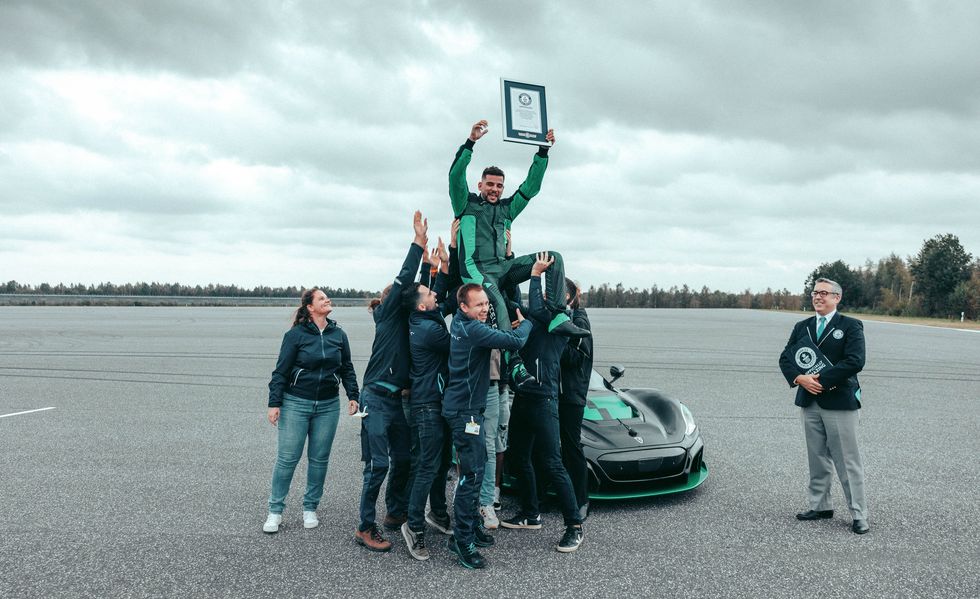- The Rimac Nevera has just set a new world record for the fastest speed by a vehicle in reverse, at a testing facility in Germany.
- The record was set at the Automotive Testing Papenburg facility in Germany, where the Nevera reached an astounding top speed of 171.34 mph.
- It wasn’t that fast, but Car and Driver did execute a reverse-driving test in 2011 as part of our “Rental Car Olympics.”
We love the sort of car-based shenanigans that make you scratch your head and just mutter “What were they thinking?” It’s that sort of harebrained thinking that drove us to pit four rental cars against one another in 2011, complete with a reverse hot lap. Spoiler alert: that Lincoln Town Car was bloody quick in reverse. It appears the engineers at Rimac share our passion for driving in reverse, as they have just set a new world record with the Nevera.
Rimac brought the Nevera to the Automotive Testing Papenburg facility in Germany, where test driver Goran Drndak piloted the vehicle to an astonishingly fast 171.34 mph. In reverse. He described the experience as unnatural for the Nevera. “On the run itself, it definitely took some getting used to,” said Drndak. “You’re facing straight out backwards watching the scenery flash away from you faster and faster, feeling your neck pulled forwards in almost the same sensation you would normally get under heavy braking.”
According to the manufacturer, the extraordinary feat is made possible because the Nevera’s drivetrain has no gears. There are four individual motors—two for each axle— that propel the car forward or backward, with no regard for gearing. That means the same motors that propelled the Nevera to its world-record-setting 256 mph earlier this year are capable of providing the same thrust in reverse. The limiting factors instead become stability and aerodynamics.
The Nevera’s chief engineer joked about how the idea for the record had come up during development. “It occurred to us during development that Nevera would probably be the world’s fastest car in reverse, but we kind of laughed it off,” said Matija Renić. “The aerodynamics, cooling, and stability hadn’t been engineered for traveling backwards at speed, after all.”
Associate News Editor
Jack Fitzgerald’s love for cars stems from his as yet unshakable addiction to Formula 1.
After a brief stint as a detailer for a local dealership group in college, he knew he needed a more permanent way to drive all the new cars he couldn’t afford and decided to pursue a career in auto writing. By hounding his college professors at the University of Wisconsin-Milwaukee, he was able to travel Wisconsin seeking out stories in the auto world before landing his dream job at Car and Driver. His new goal is to delay the inevitable demise of his 2010 Volkswagen Golf.


